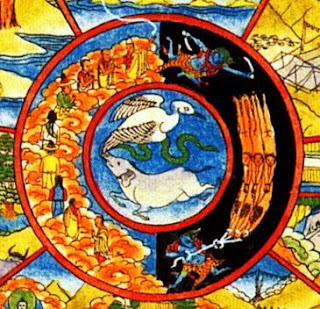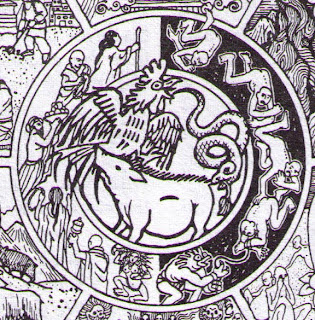Today is my last day in my apartment in Montana. I’m off to L.A. via Salt Lake City, and then Fo Guang Shan Monastery in southern Taiwan via Taipei.
Back in the US, I have exactly 5 airport-free days before making my way to London and then India to teach. From there, some time in January, I will head to Korea and (and maybe other SE Asia destinations), then back to the US. Then around April I’m heading back to the UK to finish up my doctoral studies.
If you’re anything like me, you’re feeling a little queasy at the moment just thinking about it. Just the stretch from Taiwan back to the US, on to England, India, and Korea is a complete circling of the globe. If there’s a hell realm for excessive carbon footprint in this life, I’m shortlisted for it.
On the other hand you might be envious or feeling mudita (sympathetic joy, one of the ‘divine abidings’ taught by the Buddha). All of this traveling really is incredible and wonderful. Sure to be one amazing opportunity and discovery after another.
But opportunity doesn’t come without a cost. Something and often someone is always left behind. I cannot take my ‘stuff’, my comforts, my favorite radio shows, places to hike or watch a sunset, my friends and family. But then all of this ‘my‘ing reminds me of the Buddha’s teaching:
netaṃ mama, nesoham asmi, na meso attā’ti.
This is not mine, I am not this, this is not my self.
This uprooting process is a great teacher – experientially – of the fact that none of these are mine. None is nicca, permanent, and despite how wonderful they are, each has in it the seed of dukkha, suffering.
The topic of many discussions in my Buddhisty circles lately has been distraction. Yes, our society is filled with it, but even if it weren’t our minds would seek it out. This is the human condition. Ever since I got the job in India I’ve been distracted – often with simple random things, then with planning, seeing friends and family, and then a little more planning. So really feeling what is happening has been difficult. Both recognizing all that is being left behind and all of the wonderful experiences ahead of me has come slowly.
Surely enough though, reality makes itself felt. Recognizing that the feelings, positive (sukha), negative (dukkha), and neither/nor (adukkhamasukha) are not mine or permanent helps unhook things, lets the flow return, like little rainbow trout caught and released by this young man in Missoula’s Clark Fork River. We cannot overcome the vicissitudes of life, the bumps and smooth stretches. But we can learn to flow with it. This is the flow of the dhamma, truth, not the flow of society. This is why the Buddha described his teaching as Paṭisotaṃ, against the stream, referring to the habits of sensuality, desires, conflicts, war, and so on in the world around him.
Yet at the same time, the term ‘stream enterer’ is used for a disciple who has unshakable confidence in the teachings and the order, as well as perfected morality. The conditions for achieving this are companionship with good people, hearing the true doctrine (sadhamma), intelligent reflection, and living in conformity with the Dhamma.
So perhaps we can say that at a simple level at least, Buddhism is really black and white, dualistic. Either you’re going according to the societal stream, or the Dhamma stream. Tibetans capture this well in the second circle of the Wheel of Life:













